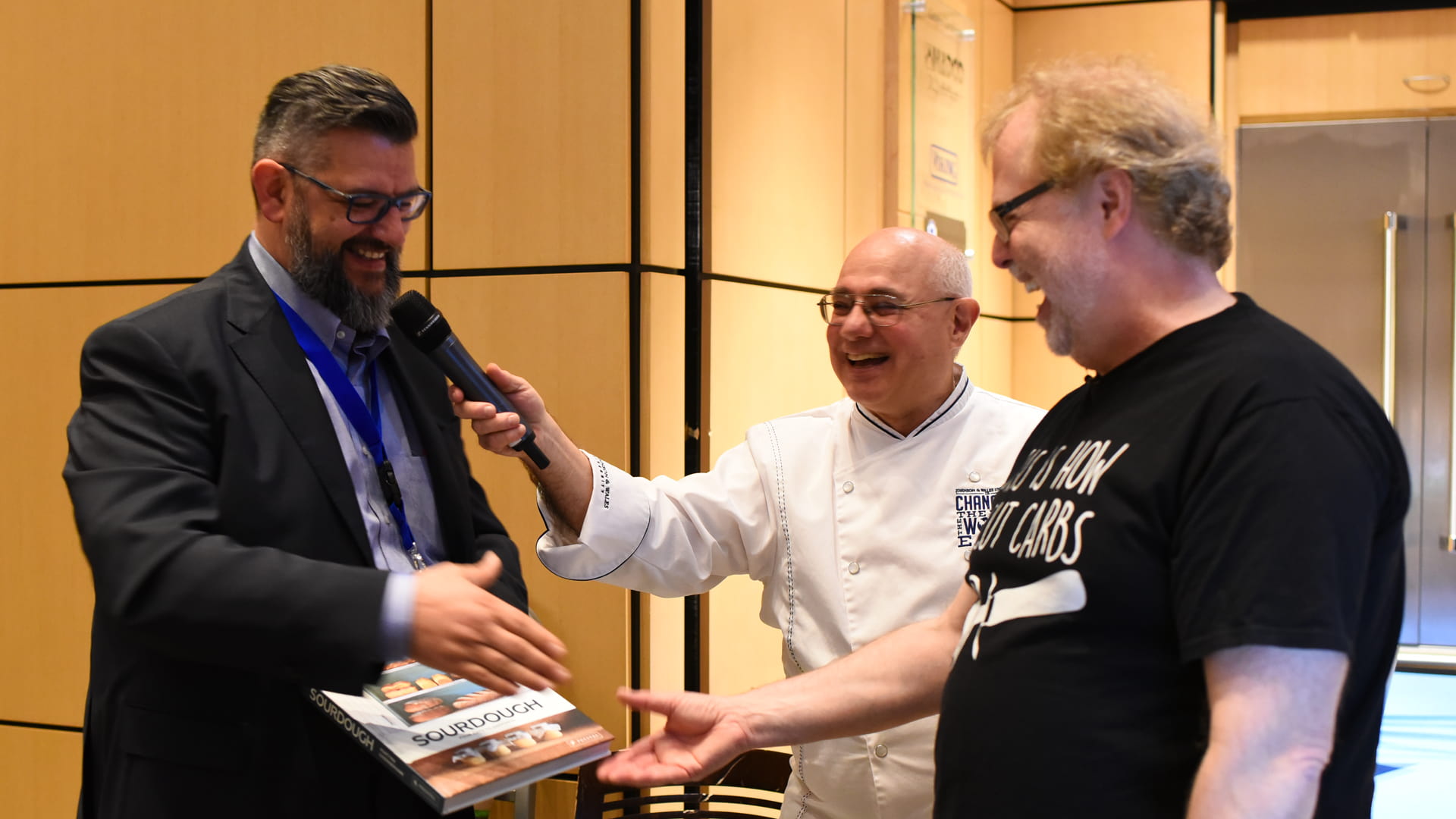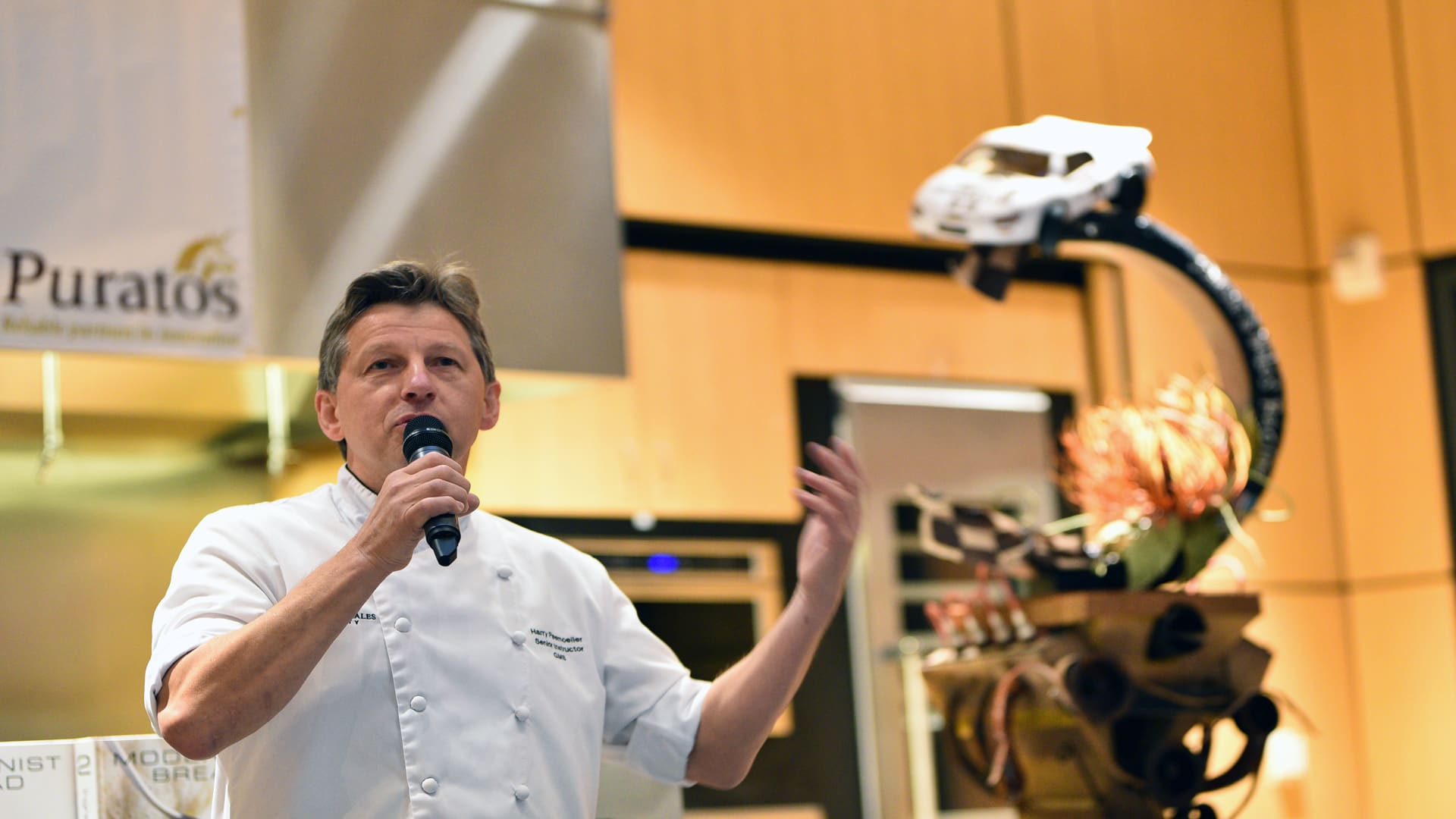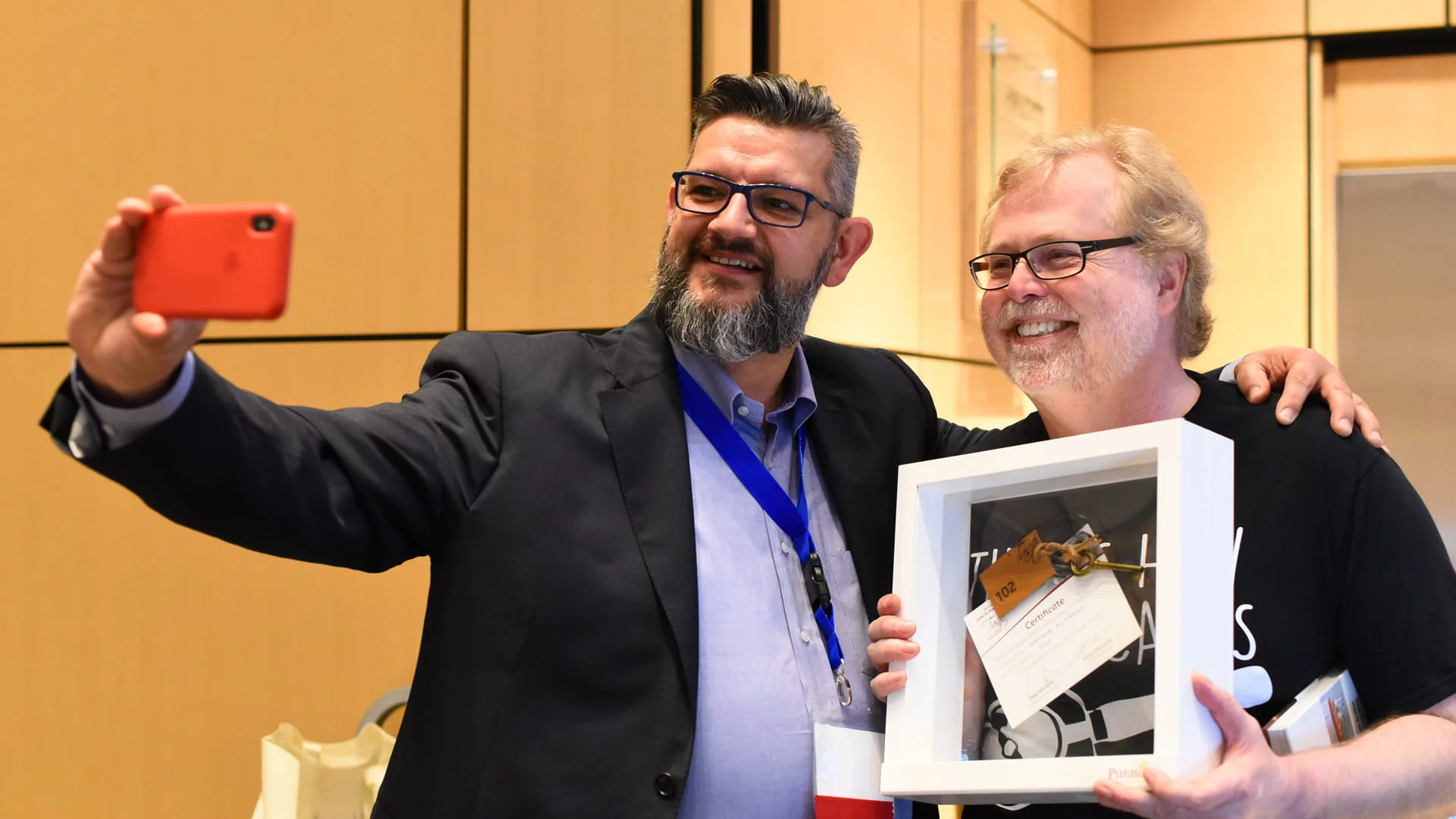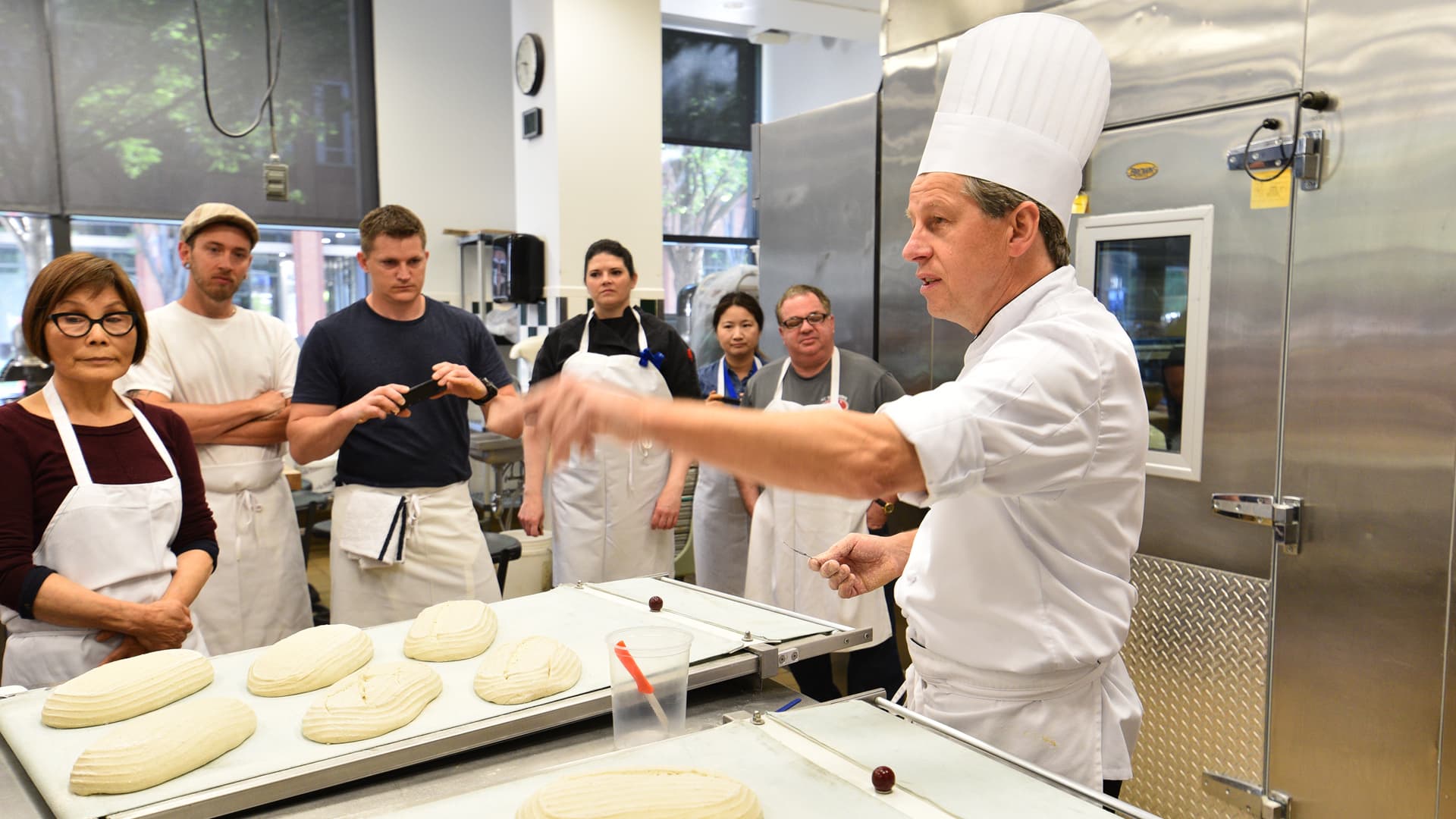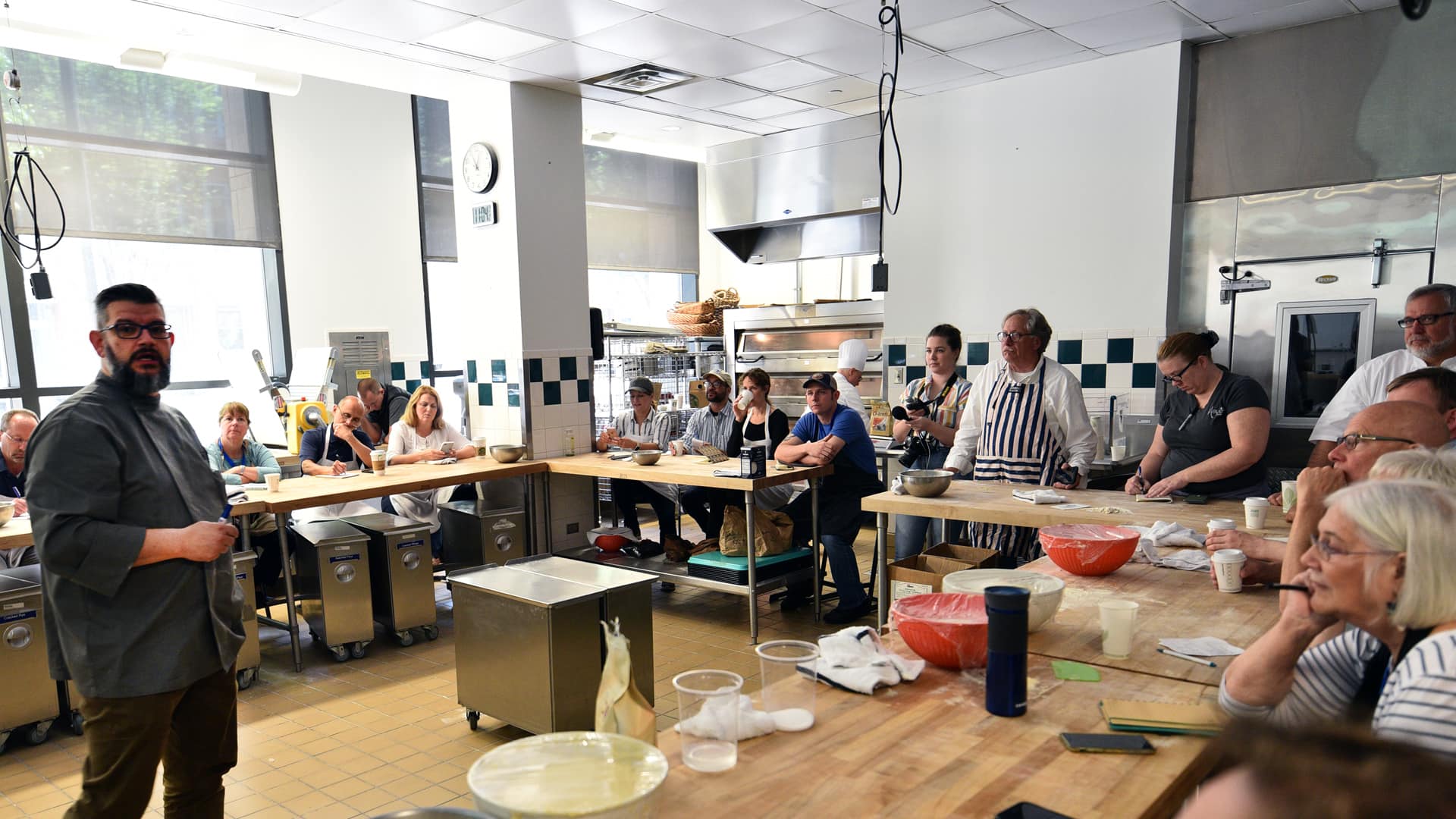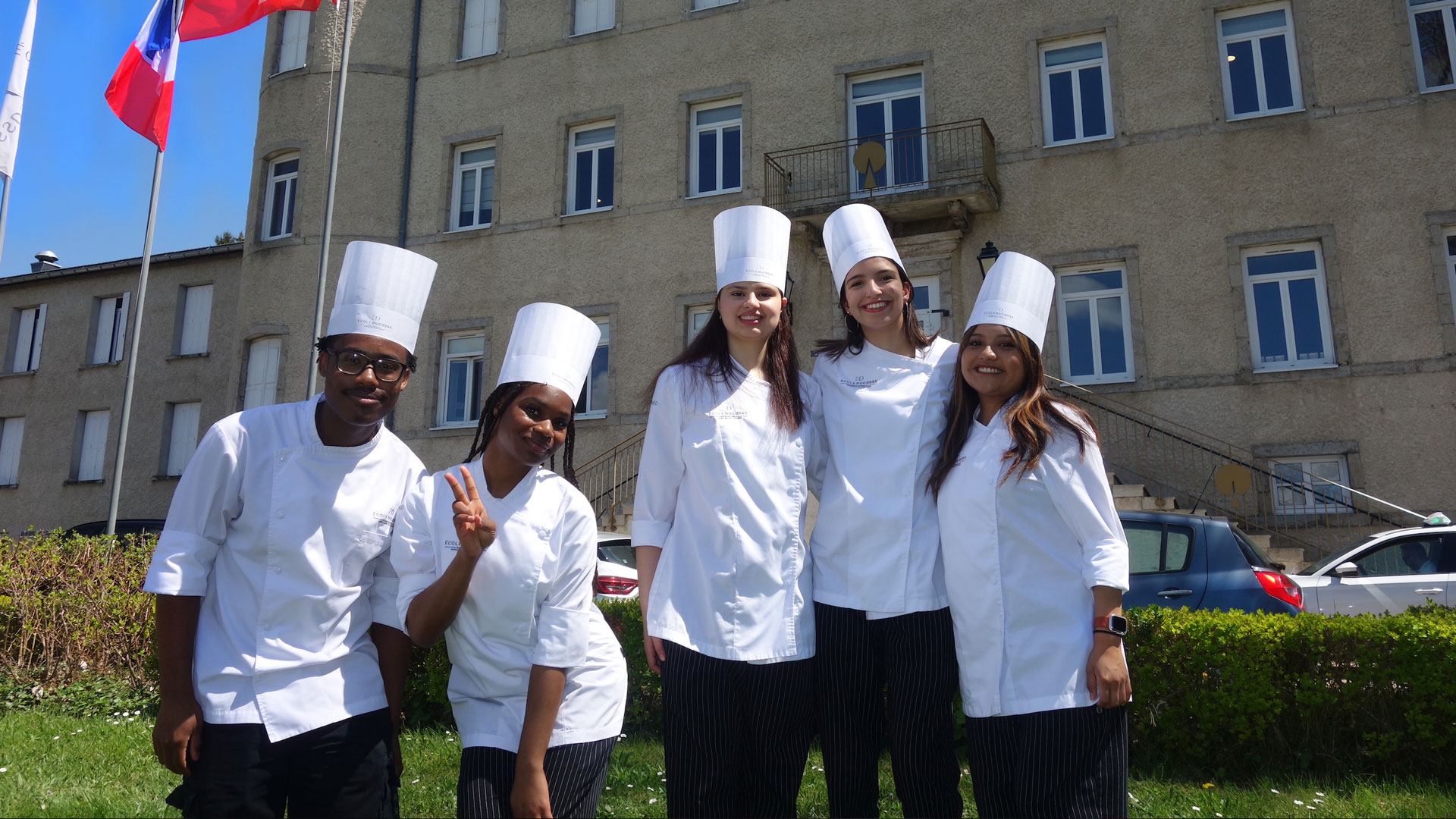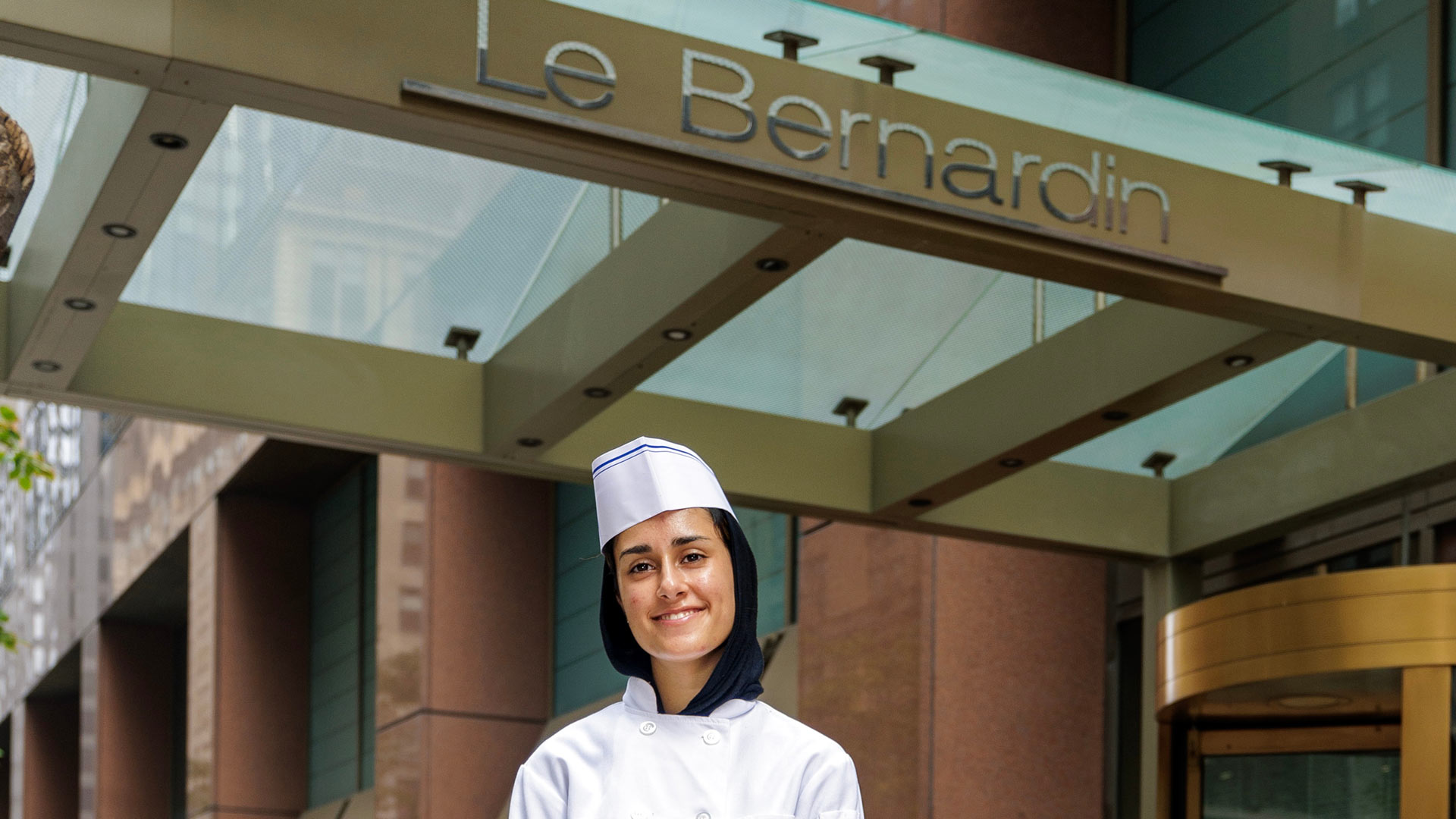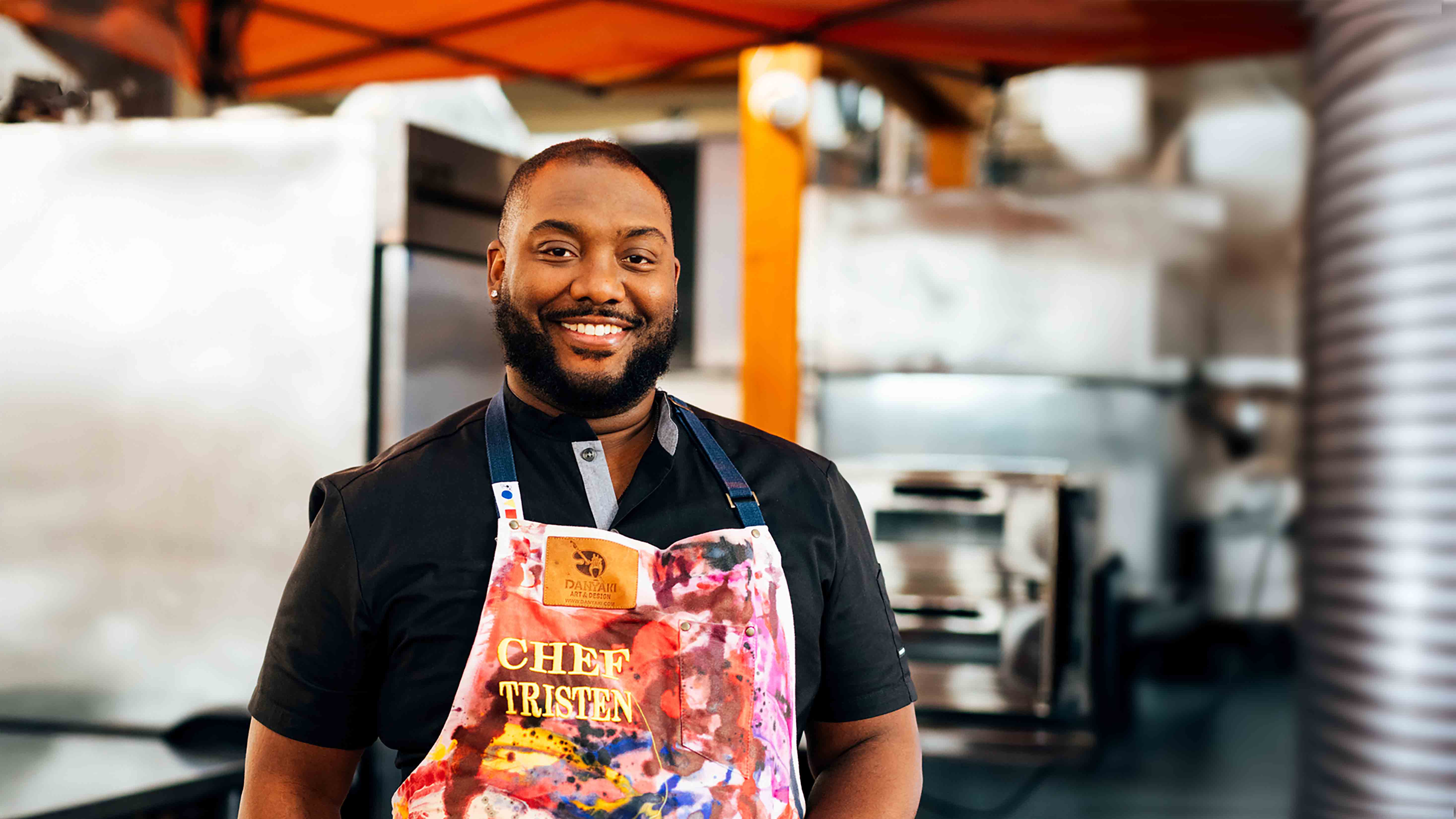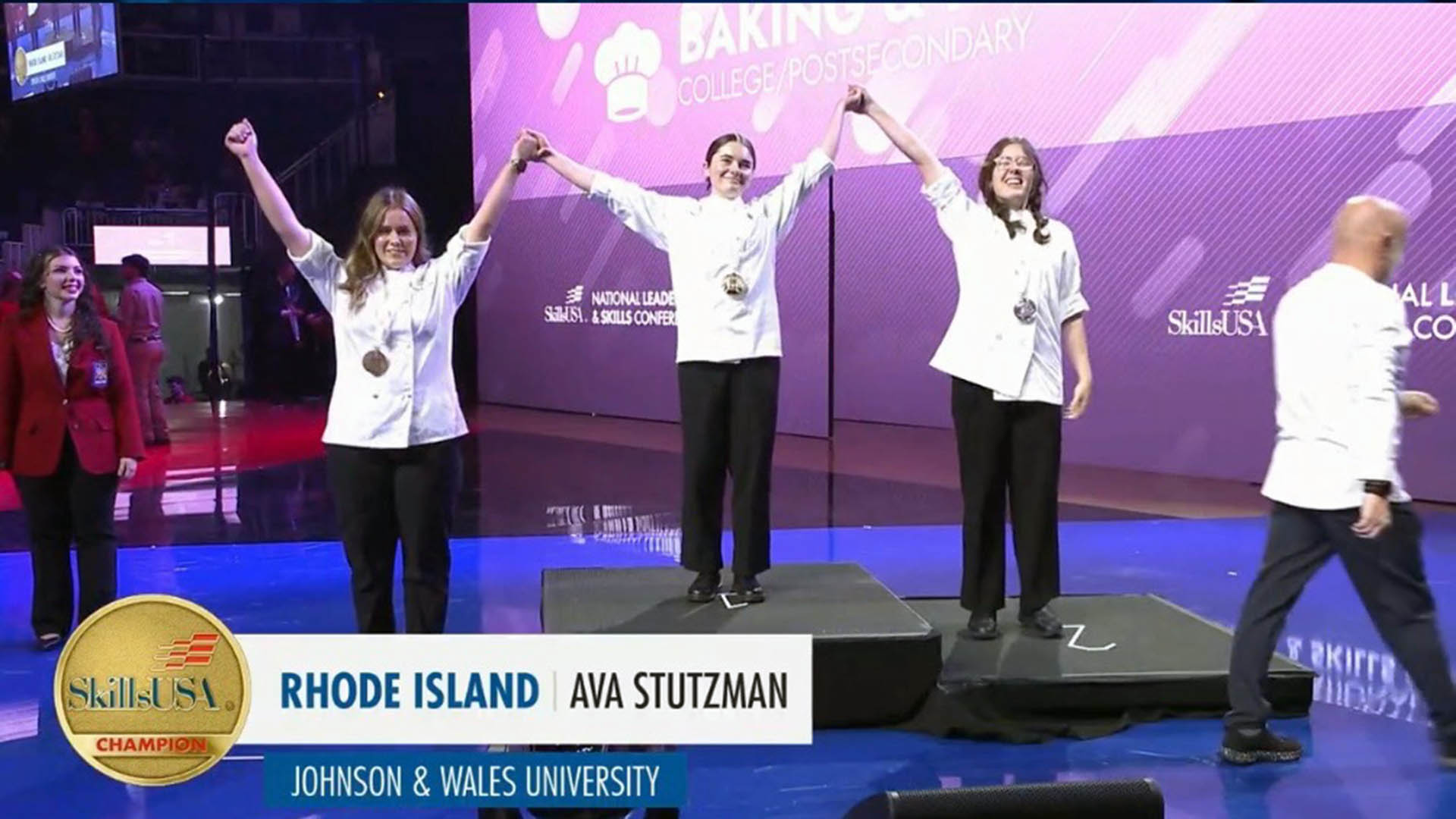The Future of Bread: Takeaways from the 2018 JWU Charlotte Bread Symposium
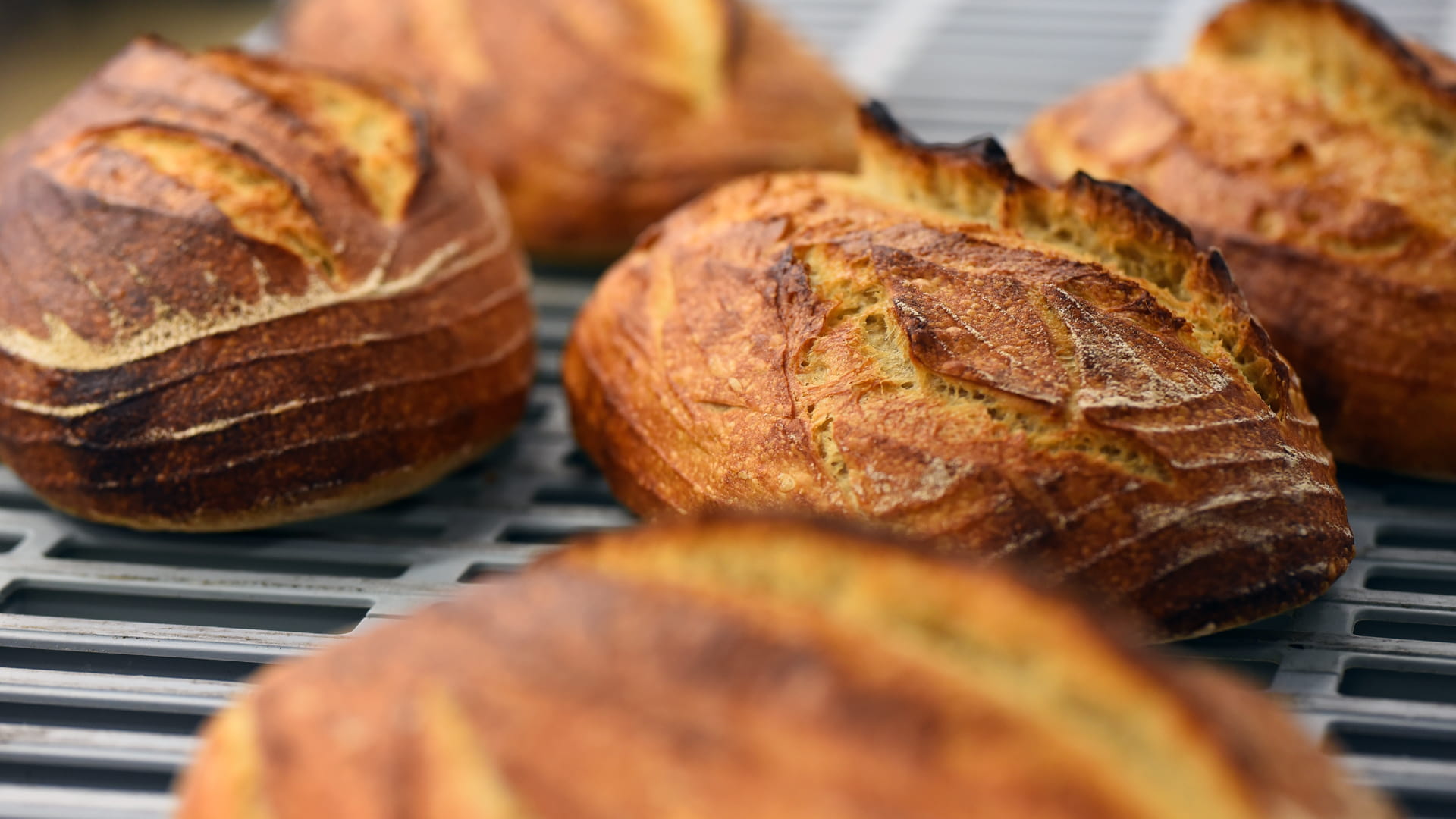
For the second consecutive year, JWU’s Charlotte Campus hosted On the Rise: The Johnson & Wales International Symposium on Bread. This year, the Symposium spanned 3 days, including the addition of a full day of hands-on workshops on sourdoughs and on baking with rye, polycrops and local grains.
The Symposium speakers represented a who’s who of experts in bread, grain, art, history, and science; the 150 attendees were able to productively interact with the presenters as well as with various sponsors during the breaks.
The initial 2017 Symposium laid a strong foundation for the exploration of the Symposium’s ongoing theme, The Future of Bread, upon which the 2018 Symposium was able to build. While the presentations covered everything from bread in history, culture, and the arts as well as its technology and craft (one of the previous year’s important concepts was the notion of “craft at scale”), some of the most powerful takeaways this time around included the burgeoning interest and research in the realm of sourdough baking.
Erin McKenney of the Rob Dunn Lab at North Carolina State University spoke of the hundreds of “citizen scientists” around the world who are maintaining sourdough starters and sending in samples to her for analysis. This has allowed McKenney’s team to identify hundreds of microorganisms, mainly wild yeast and lactic and acetic acid bacteria, and to isolate their various flavor producing qualities.
McKenney’s research, coupled with the work of another speaker, Karl DeSmedt of the Puratos Sourdough Library in Saint-Vith, Belgium, has made it possible to categorize the functionality and flavor profiles induced by these various microscopic organisms, and open the door for targeted future applications, not only for flavor development but also for health and wellness.
In his opening keynote address, Nathan Myhrvold, the creator and co-author of “Modernist Bread,” shared some of the findings his research team discovered during the 4 years it took to produce his massive 5-volume encyclopedia on bread, such as why steam causes bread to develop shine and crispness, and how to use pre-gelatinized and alkalized starches, like nixtamal and hominy, to produce better performing, lighter gluten-free breads.
But he also raised a philosophical question that provided ongoing context throughout the following two days’ proceedings: “Why do consumers think bread should be given away for free in restaurants, especially given the amount of care, skill, and craft that goes into producing it?” He contrasted this with the perceived value of risotto, which can sell for as much as $18 a bowl but costs about the same to produce as a loaf of bread. (Ironically, a few days after the Symposium, the Charlotte Observer ran a story about a local restaurant that now charges $6 for a basket of bread and butter).
Another perception that Myhrvold dispelled was the nostalgic notion that bread produced in the past, the so-called good-old days, was better than what is currently being made. On the contrary, he asserted, probably the best bread the world has ever seen is being produced right now, and it can get even better in the future due to the increased scientific knowledge of today’s bakers, millers, and farmers.
Jennifer Lapidus, the founder of Carolina Ground, a small specialty flour mill in Asheville, NC, followed Myhrvold’s assertion by presenting her vision of the farmer-miller-baker coalition, where skilled bakers are willing and capable of adjusting to the unpredictability of locally grown grain, cultivated specifically for the soil and climate of the region, which then allows farmers the economic viability of growing these specialized, non-commodity grains. While just a drop in the ocean compared to the amount of wheat and corn grown in the commodity grain world, this “baker at the helm” model provides a viable option for the future of bread, milling, and farming — at least on the local level.
Other important takeaways this year included a presentation by sprouted flour millers, Joe and Caroline Lindley of Lindley Mills, and Peggy Sutton of To Your Health Sprouted Flour, who are two of the pioneers in this growing sector. They revealed recent information on the nutritional benefits of intentionally sprouted wheat (and other grains) to increase vitamin, mineral, and antioxidant content. Through the cookies and bread samples they passed out to the audience, they also showed how sprouting also enhances flavor. A few years ago, sprouted flour was just a blip on the screen in the world of bread and baking, but it has now increased its visibility and credibility and is about to carve out a much larger economic slice of the proverbial loaf.
These are just a few of the takeaways from this year’s Symposium. The current plan is to convene again in two years at the Charlotte Campus — in collaboration with presenting sponsor, Puratos — and then on a biannual basis. Who knows what the future of bread will look like in 2020? But one thing is clear: Even after 6,000 of bread baking, there is still much to be revealed.
Peter Reinhart is a Chef on Assignment at Johnson & Wales University’s Charlotte Campus. He was the co-founder of the legendary Brother Juniper’s Bakery in Sonoma, California, and is the author of 10 books on bread baking and pizza, including “Brother Juniper’s Bread Book” and the modern classic “The Bread Baker’s Apprentice.” He is also the author of “American Pie: My Search for the Perfect Pizza.” For more of Peter’s interviews, videos and recipes, follow Pizza Quest.
BELOW: SCENES FROM THE 2018 BREAD SYMPOSIUM, INCLUDING (TOP) KARL DE SMEDT, PURATOS SOURDOUGH LIBRARIAN, SHARING A LAUGH WITH SYMPOSIUM ORGANIZER PETER REINHART (CENTER) AND NATHAN MYHRVOLD (RIGHT).
